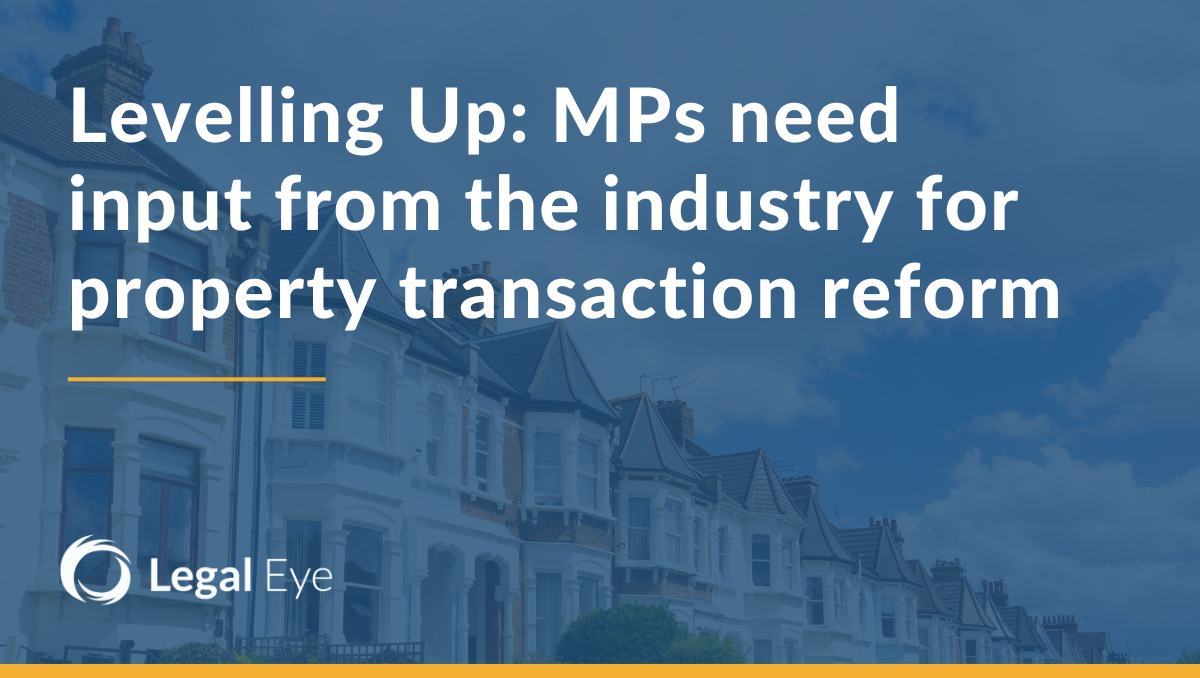To say that March was a busy month for conveyancing firms would be something of…
The Levelling Up, Housing and Communities (LUHC) Committee has launched an inquiry into home buying and selling in England. A cross-party group of MPs will scrutinise the current property transaction process, question relevant stakeholders, and make recommendations for improvement.
Commenting on the review, Clive Betts, chair of the LUHC Committee, said: “The process of buying and selling a home in England is often stressful for those involved. Indeed, despite there being around two million households who successfully buy or sell their home each year, consumers often find the process is not as efficient, effective, or as consumer-friendly as it could be.
“As part of this inquiry, we will look at the chief obstacles to improving the process of buying and selling a home. We will be keen to examine issues such as the time taken to complete a transaction and challenges in finding the right information. Topics such as a lack of transparency around conveyancing services, the payment of ‘referral fees’, and the weak regulation of estate agents will also be on our agenda in this inquiry.”
Key issues to be examined by the Committee include:
- How efficient and effective the existing process for buying and selling homes is, and how this could be improved
- How to improve the consumer experience during the property transaction process
- Whether the reliance on voluntary initiatives is adequate or whether improvements should be made mandatory through legislation
- The impact of issues such as gazumping or gazundering and how these could be remedied
- Whether greater use of reservation agreements would improve the transaction process and what prevents them being more widely used
- Why a short, standardised reservation agreement has not been developed, as promised by the then Government in 2018
- Whether buyers have the right information available at the right time during transactions
- The effect if sellers were required to provide set information about a property when it was marketed
- How much data still needs to be digitised, and how the digitisation process can be accelerated or prioritised
- The current challenges to digitisation or providing information at listing
- Whether consumers have sufficient information to determine which conveyancer to use and how information provision on conveyancing could be improved
- What effect a mandatory professional qualification for estate agents would have
- Whether there should be a single, legally enforceable Code of Practice for property agents
- The impact of referral fees and how a review, standardisation of practice, or ban would affect transactions and consumers.
The closing date for submissions was Thursday 18 April. Evidence sessions began on 13th May, with input from the following stakeholders:
- Home Buying and Selling Group
- HomeOwners Alliance
- Open Property Data Association
- The Royal Institution of Chartered Surveyors (RICS)
- Propertymark
- The Conveyancing Association
Mandating upfront information to stop “second guessing” and to ensure “everyone has what they need” was the main call from industry bodies in their evidence to MPs.
You can watch the session here.
Our opinion
At Legal Eye, we support efforts to make property transactions faster, clearer, and smoother for conveyancers, estate agents, and clients. We recognise the need for reform and share the view of property professionals that mandating up-front information would result in fewer failed sales.
We also believe that having greater transparency between those involved in the process (e.g. lenders and conveyancers) and being able to check on a transaction’s progress in real time would make a huge difference when it comes to keeping clients updated. While adopting processes to speed up the settlement process and ensure the seamless movement of funds could help remove the fear of mortgages not clearing in time.
Greater clarity on the transparency rules, particularly those about price and service information, could also aid solicitors and deliver enhanced compliance (in late 2023, only 42% of firms claimed to adhere to all the information requirements) while helping consumers make more informed choices.
With input from industry professionals and stakeholders, alongside advancements in digital technology, the Committee’s enquiry presents a real opportunity to streamline transactions, reduce stress, and ultimately provide a better experience for all involved.


